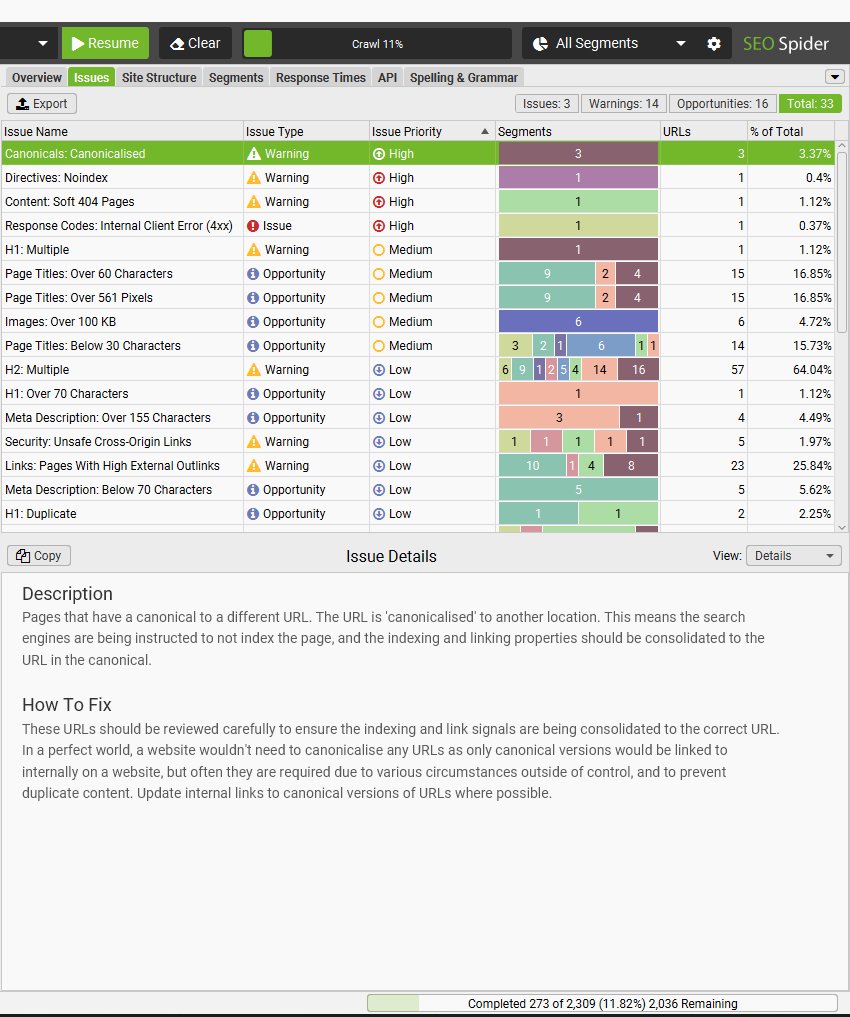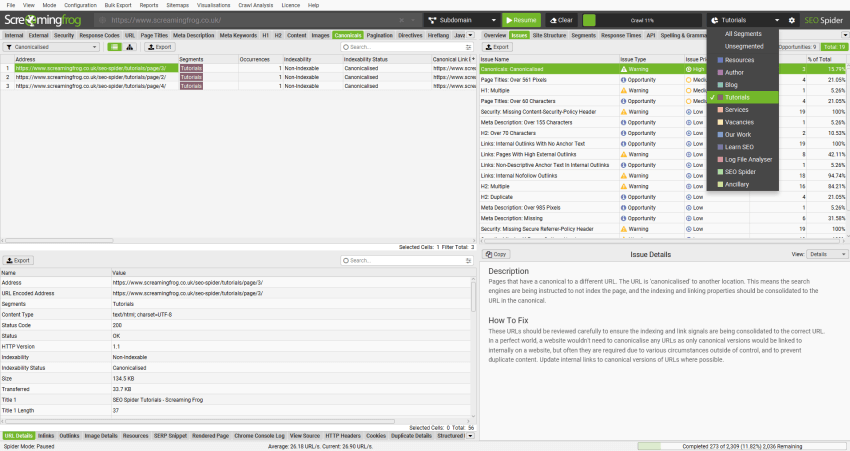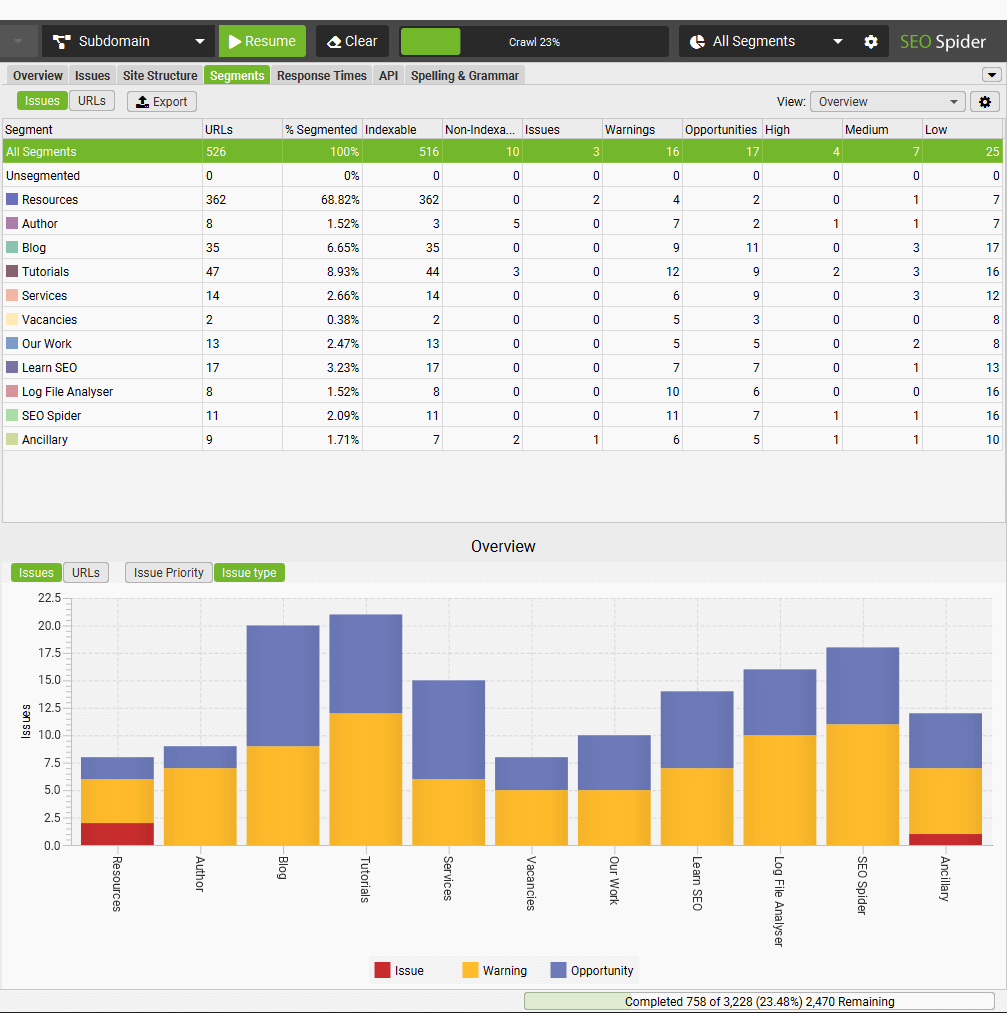Segments
Dan Sharp
Posted 17 July, 2023 by Dan Sharp in
Segments
Configuration > Segments
You can segment a crawl to better identify and monitor issues and opportunities from different templates, page types, or areas of priority.
Watch our video, or read our guide below on how to set up segments.
The segments right-hand tab and configuration is only available if you’re using database storage mode.
If you’re not already using database storage mode, we highly recommend it. This can be adjusted via ‘File > Settings > Storage Mode’ and has a number of benefits.
The segmentation config can be accessed via the config menu or right-hand ‘Segments’ tab, and it allows you to segment based upon any data found in the crawl, including data from APIs such as GA or GSC, or post-crawl analysis.
You can set up a segment at the start, during, or at the end of a crawl. Once set-up, segments can be saved with the configuration.

A segments column will appear in each tab with coloured labels against each URL with their segment.

When segments are set up, the right hand ‘Issues’ tab includes a segments bar, so you can quickly see where on the site the issues are at a glance.

You can then use the right-hand segments filter, to drill down to individual segments.

The right-hand ‘Segments’ tab is an aggregated view, to quickly see where issues are by segment.

You can use the Segments tab ‘view’ filter to better analyse items like crawl depth by segment, or which segments have different types of issues.
Please note – You are able to segment using existing segments. For example, you may wish to include URLs in a segment, if it’s not already in an existing segment. This works by order of precedence. Dependencies must be above those in order to work appropriately.
Segments are fully integrated into various other features in the SEO Spider as well.
- You can select to colour crawl visualisations by segments.
- You can choose to create XML Sitemaps by segment, and the SEO Spider will automatically create a Sitemap Index file referencing each segmented sitemap.
- Within the Export for Looker Studio for automated crawl reports, a separate sheet will also be automatically created for each segment when a saved configuration is supplied with segments set-up. This means you can monitor issues by segment in a Looker Studio Crawl Report as well.






